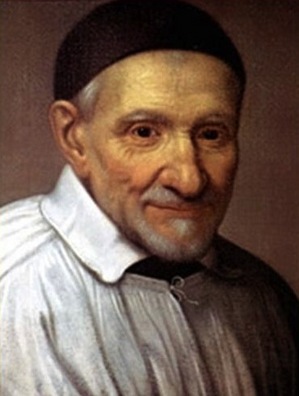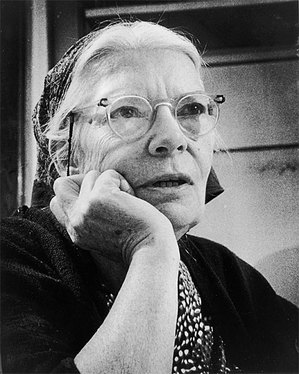Letter to a Novice Oblate IX

My very dear Novice Oblate,
To Relieve the Poor
This morning at Matins as I read an excerpt from the writings of Saint Vincent de Paul, I was thinking of all of you, and especially of those of you who are mothers caring for children, and fathers bearing the responsibility of work and the heat of the day. In this text, Saint Vincent speaks of the service of the poor, something to which Saint Benedict calls us in Chapter Four of the Holy Rule, The Instruments of Good Works where he enjoins us to relieve the poor.
Who is Poor?
I would caution you against having too narrow an idea of who is poor. There are poverties of the heart and of the soul. There are poverties known to God alone. The poor come to us in many guises and disguises. There are “poor” in our own families, and living in our own homes. There are “poor” among our friends. There are “poor” among those whom the world judges to be comfortable, secure, and independent.
Listen to Saint Vincent
Here is what Saint Vincent de Paul says; the translation from the original French is my own:
God loves the poor and, for this reason, He loves those who love the poor, for when one really loves someone, one has affection for his friends and household.
There must be no delay in what pertains to the service of the poor. If at the hour of your prayer in the morning, you must bring medicine to someone, go about it in peace; offer your action to God, unite your intention to the prayer that is being offered at home, or elsewhere, and go forward without worrying.
If, when you return, it is convenient for you to devote a little time to prayer or to spiritual reading, so much the better! But you must not worry, nor think that you have failed when you lose your time of prayer, for it is not lost when it is given up for a legitimate duty. And if ever there was a legitimate duty, it is the service of the poor.
In no way do you leave God if you are leaving God to go to God, that is to say leaving one work of God in order to do another that is of a weightier obligation, or of greater merit. If you put aside your reading, or lose your silence in order to serve a poor person, know that in doing that, you are serving God. You must see that charity is above all rules, and all rules must be related back to charity. Charity is a great lady; one must do what she commands.

It is Thy Face, O Lord, that I Seek
I am sometimes concerned that you feel less a Benedictine Oblate when your family duties take you away from saying an Hour of the Divine Office, or doing a bit of lectio divina, or praying your rosary. The true Benedictine Oblate is one who seeks God in all things, and recognizes the Face of Christ in the hundreds of faces seen at home, at work, or on the street. Benedictine Oblates have always been devoted servants of the poor. I am thinking particularly of the patroness of Oblates, Saint Francesca of Rome, wife and mother, and of Dorothy Day, foundress of The Catholic Worker.
Unlike the monk living in his cloister, who can consult his abbot to know what must be done in a given situation, the Oblate must discern the right thing to do, relying on the Gospel; the teachings of the Church; the Holy Rule; the example of the saints; written instructions by the father of your monastery, such as this one; and the unfailing light of the Holy Ghost.
In Freedom of Spirit
Above all else, I want you to avoid the torment of scrupulosity. Once you have discerned, in good faith, that a particular course of action is right, hold fast to it in freedom of spirit, offering it to God.
You are in my prayer at the altar each day. Remember your monastery before the Lord because we too are numbered among the poor. For this, we count ourselves blessed. Only when we are poor can we reflect the radiance of the Face of Jesus.
In lumine vultus Iesu,
Father Prior
